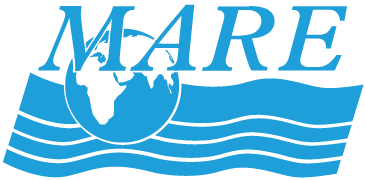International Ocean Literacy Survey
Despite considerable investments in Ocean Literacy over the last 15 years, it has been difficult to show progress of the Ocean Literacy movement, in part, because no widely adopted measurement tool exists. Previous researchers on ocean learning have used a wide variety of methods, target groups, learning goals, and conceptual frameworks. The need for a common, shared measurement tool has been widely expressed by members of the Ocean Literacy community around the world to determine the impact of particular interventions, to establish a baseline of Ocean Literacy in particular communities, to detect changes in Ocean Literacy levels in particular communities over time, and to compare differences in levels of Ocean Literacy across communities
The International Ocean Literacy Survey (IOLS) project, an unfunded, grassroots and collaborative effort, was initiated in 2015 to address this challenge.
The IOLS, is a community-based measurement tool that allows the comparison of levels of ocean knowledge among 15 to 17 year olds across time and location. The IOLS includes multiple choice questions addressing the ideas about the ocean described by the Ocean Literacy Framework. The IOLS has already gone through two rounds of field testing. The results from the second testing, provide evidence that the IOLS is psychometrically valid and reliable, and has a single factor structure across 17 languages and 24 countries as presented in our recent publication.
The analyses of the second version of the IOLS guided the construction of Version 3 that was then shared with the IOLS Advisory Board composed of international educators, teachers, communicators, marine scientists and psychometricians. Two rounds of reviews with our advisors lead to the completion of Version 4 that has now been translated in 12 languages and is undergoing a final round of testing January through March 2019.
Version 4 has now been translated into 15 languages and is ready to be distributed and tested!!
If you have access to any students ages 15–17 that are native speakers of the languages listed below, please have them complete the survey online.
IOLS V4 in Catalan
IOLS V4 in Chilean
IOLS V4 in Traditional Chinese
IOLS V4 in Dutch
IOLS V4 in Simplified Chinese
IOLS V4 in Greek
IOLS V4 in Japanese
IOLS V4 in Italian
IOLS V4 in Thai
IOLS V4 in Korean
IOLS V4 in Polish
IOLS V4 in Portuguese
IOLS V4 in Spanish
IOLS V4 in Tagalog
Attached are information letters for both parents and students, and a script to read to students before they take the survey.
Here is the information letter for parents, the information letter for students, and a script to read to students before they take the survey.
If you don’t have access to students but still want to help, share this invitation letter with the teachers and informal educators you know. We need at least 200 respondents in each language to be able to analyze the data.
The Lawrence Hall of Science at the University of California, Berkeley leads this effort along with the following partner organizations that support the development of the Survey.
Asia Marine Educators Association (AMEA)
California Education and the Environment Initiative (EEI)
Canadian Network for Ocean Education (CaNOE)
Chulalongkorn University
Escola Azul, República Portuguesa Mar
Expedición Batiscafo
Gdynia Aquarium
Guangxi Academy of Sciences
ISMAR
Korea Research Council of Maritime Education
Marine Conservation Society
Marine Learning Center
National Marine Educators Association
National Ocean Sciences Bowl
National Taiwan Ocean University
Partnership for Observation of the Global Ocean (POGO)
S’Agulla
SUBMON
Surfline
Taiwan Marine Education Center
Tokyo University of Marine Science and Technology
The Hydrous
The Oceanographic Society of Japan
UNICAM, Università di Camerino
VLIZ
World Ocean Observatory

